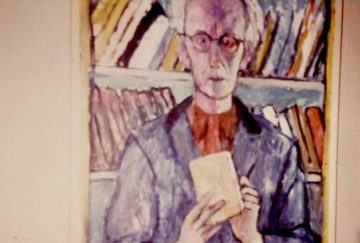 Marta Figlerowicz in Boston Review:
Marta Figlerowicz in Boston Review:
The life of Polish artist and diplomat Józef Czapski (1896–1993) in many ways mirrored the intellectual trajectory of twentieth-century Europe. Yet readers have likely never heard of him. That is in part because, despite being exemplary, Czapski’s work is hard to contextualize. It does not fit neatly as either prewar or postwar. Instead, it reveals an old world still present in the new and seeking to understand what it had become. With new translations of Czapski’s writing and a wonderful new biography by Eric Karpeles, Czapski comes alive for English readers with a depth and clarity previously absent. One can hope, then, that the time for Czapski’s revival has come.
Czapski was a gifted painter but also a compulsive, talented diarist and essayist. In the salons of Europe, Russia, and North America, he mingled with the likes of Gertrude Stein, Pablo Picasso, André Gide, and Anna Akhmatova; Czapski even appears, in a romantic light, in one of the latter’s poems. Over the years, he had relationships with both men and women, including Canadian heiresses and the younger brother of Vladimir Nabokov.
Born in Prague into an aristocratic family, the young Count Hutten-Czapski spoke German with his mother and French with his governess. He briefly studied law at the Imperial College in St. Petersburg before moving to the newly independent Poland to become an artist. Czapski soon dropped his title and the Germanic surname Hutten; as Józio Czapski, he then moved to Paris with a group of his painter friends, where they lived on a shoestring budget with little support from their families.
More here.
